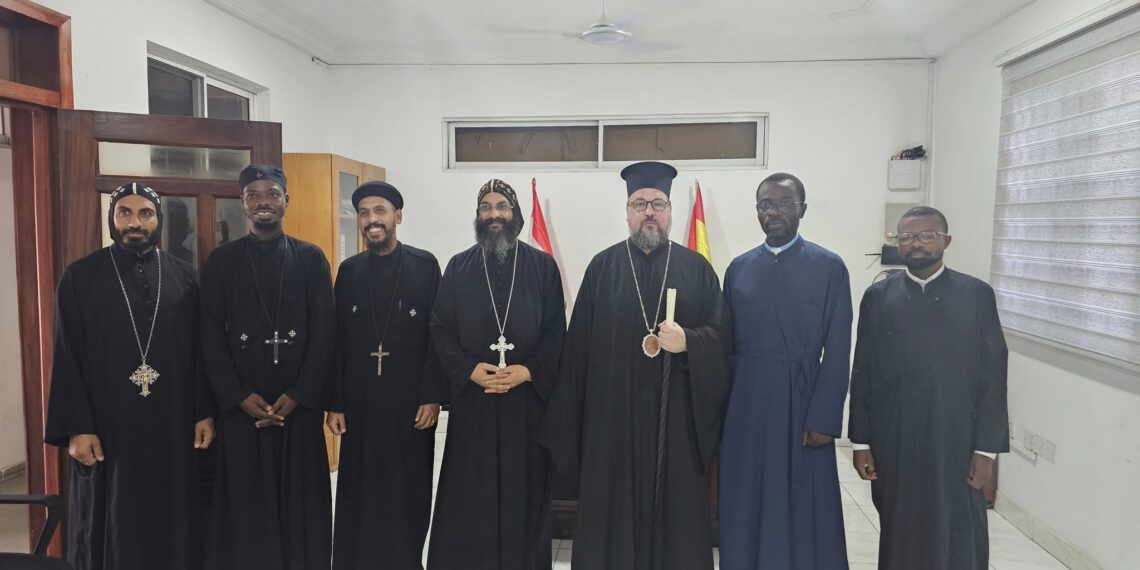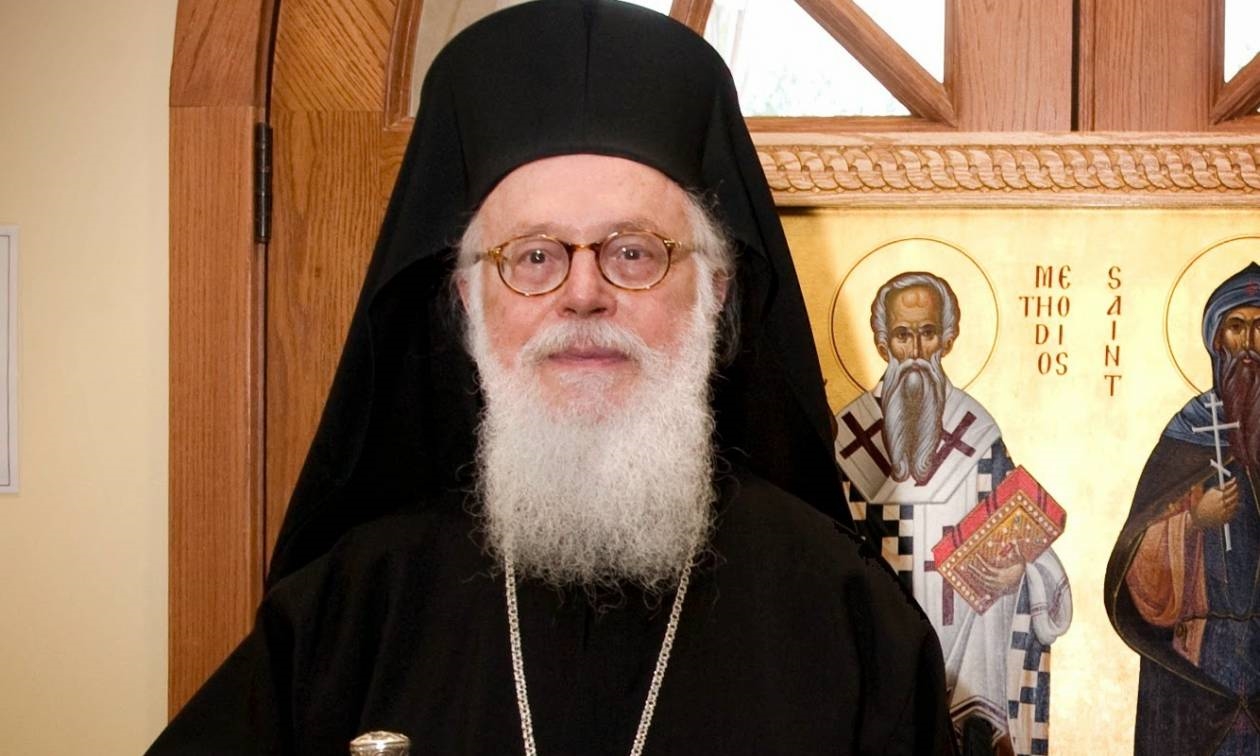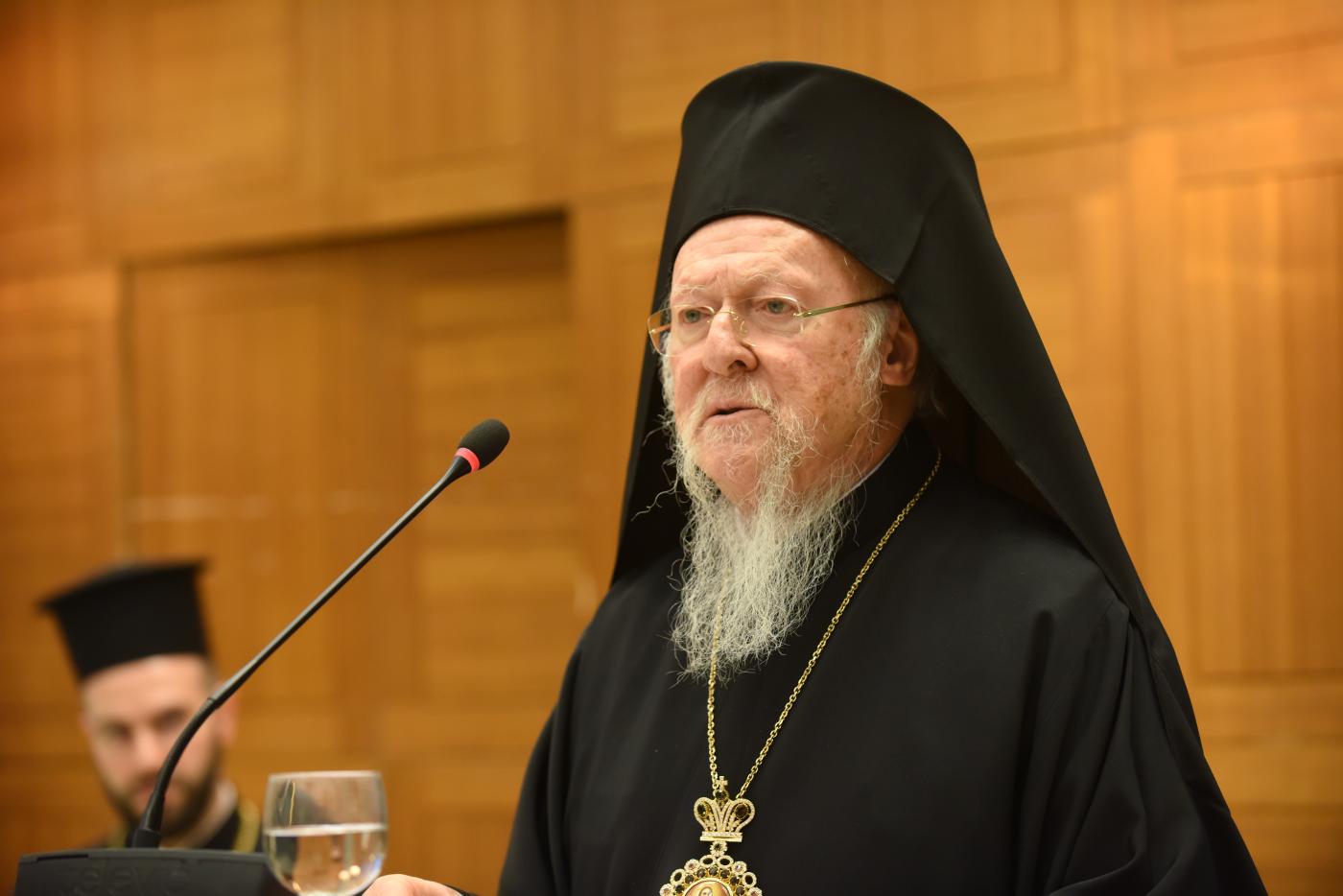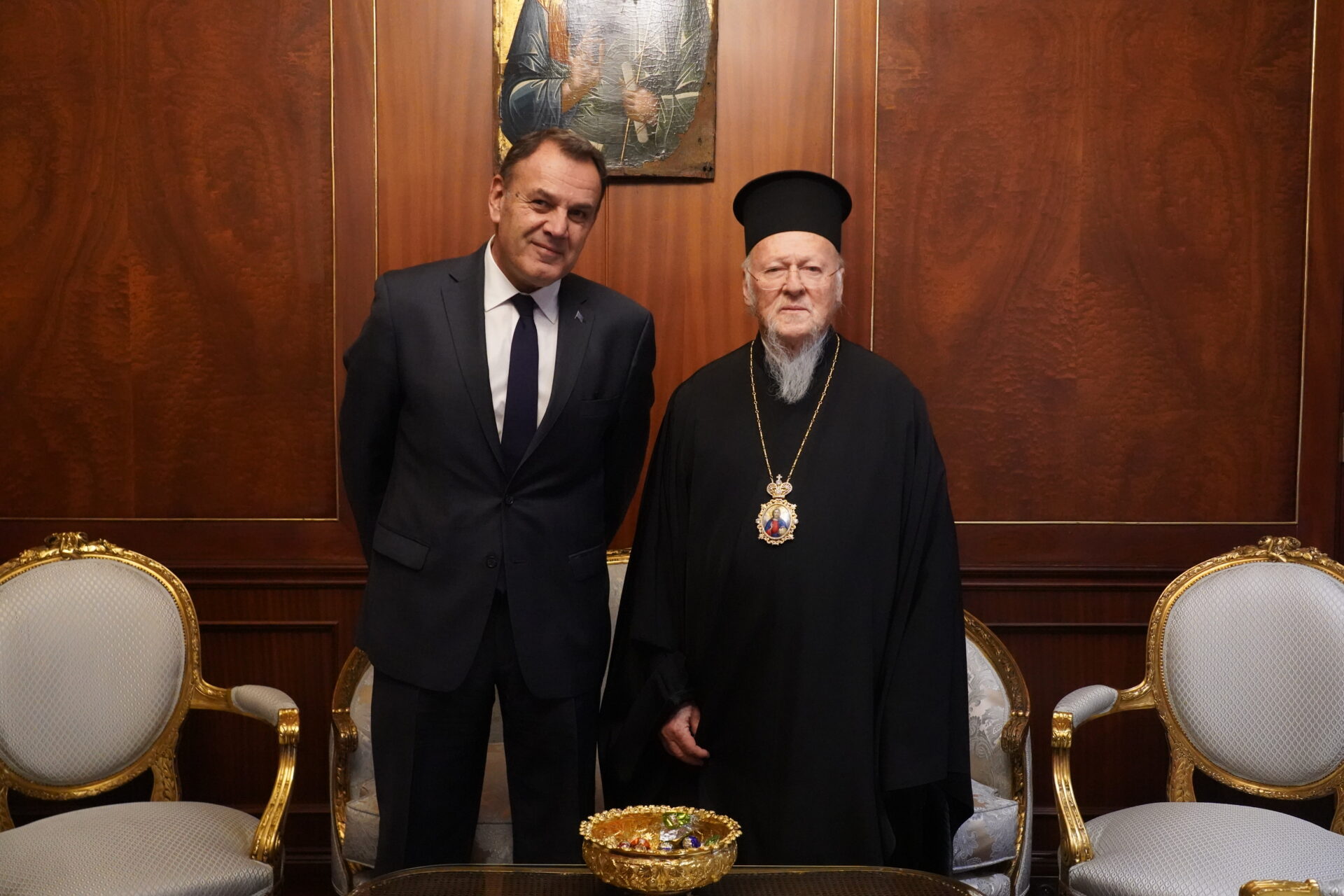6th Sunday of Matthew
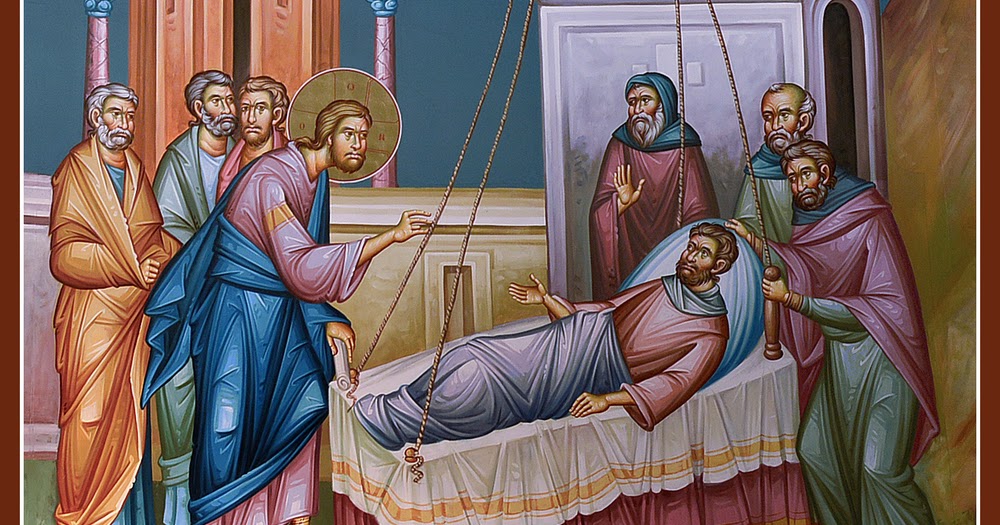

THE GOSPEL READING
Matthew 9:1-8 [The Paralytic Restored]
At that time, getting into a boat Jesus crossed over and came to his own city. And behold, they brought to him a paralytic, lying on his bed; and when Jesus saw their faith he said to the paralytic, “Take heart, my son; your sins are forgiven.” And behold, some of the scribes said to themselves, “This man is blaspheming.” But Jesus, knowing their thoughts, said, “Why do you think evil in your hearts? For which is easier, to say ‘Your sins are forgiven,’ or to say ‘Rise and walk?’ But that you may know that the Son of man has authority on earth to forgive sins” he then said to the paralytic — “Rise, take up your bed and go home.” And he rose and went home. When the crowds saw it, they were afraid, and they glorified God, who had given such authority to men.
The Gospel story teaches us that faith enables God to heal us. Sometimes, it is not our faith but the faith of others that brings God’s healing. Salvation is not merely between “me and Jesus.” It includes the entire people of God, the Church, which is to be a hospital for souls.
Jesus crosses to the northwestern side of the Sea of Galilee and goes to the area where He grew up, around Capernaum and Nazareth. This region of Galilee is inhabited by Jewish people who worship the God of Israel, where most of His disciples lived. The people gather to hear from a prophet and healer named Jesus. Some want to listen to the Lord teach about the Kingdom of God, the love of God, righteousness, forgiveness, and eternal life. Some are there for healing.
Some had faith because they witnessed His divine power and glory as He traveled with His disciples, preaching and healing the people. Others are skeptics, such as the Pharisees, Sadducees, and Scribes (scholars of the Jewish law). However, a small group of people full of faith and love decide to bring their paralyzed friend to Jesus because they believe He can help. These are people whose hearts burn with faith in God and believe that Jesus is a great Prophet of God, full of the Holy Spirit, with the power to heal.
In this way, they were full of faith, hope, and love. When Jesus witnesses their faith, He tells the man with paralysis, “Take heart, my son; your sins are forgiven.” Some Scribes say to themselves, “This man is blaspheming.” But Jesus, knowing their thoughts, says, “Why do you think evil in your hearts? For which is easier, to say, ‘Your sins are forgiven,’ or to say, ‘Rise and walk?’ But that you may know that the Son of man has authority on earth to forgive sins,” He then says to the man with paralysis, “Rise, take up your bed and go home.”
Declaring the man’s sins are forgiven is a bold statement. Everyone present, knowing that the Lord had healed many other sicknesses, expected a healing to take place. However, the Lord chooses to start with the healing of the soul before the healing of the body. The Lord’s declaration that the man’s sins are forgiven brings spiritual healing and manifests the eternal work of salvation. Of course, this is shocking to many. Miraculous as it is, it is one thing to witness God healing a person’s body by the power of the Holy Spirit through the work of Christ. However, it is quite another matter altogether for someone to declare that a man’s sins are forgiven.


We also see this today in the life of the Church. There are holy people living among us who are known for having gifts (in Greek: χαρίσματα), such as clairvoyance or whose prayers for healing the sick and suffering are quickly answered by God. These miracles are also true of the Saints, for those of us who pray for their assistance (intersession). What is unique here is that Jesus spoke in a way only God could speak. Only God can forgive sins. We forgive those who have wronged us because the Lord tells us to do so. Even so, we do not have the right to declare that someone’s sins be forgiven because only God has the power and authority to do this. Some in the crowd immediately begin to doubt and wonder who but God alone can forgive sins.
The Lord hears their thoughts and knows their hearts before they utter words. In His love and compassion, however, Jesus uses their doubt to build up their faith and performs a miracle to demonstrate His divinity and power. He explains to them, with clear reasoning, that “your sins are forgiven” is easy to utter because there is no visible, physical evidence to support it.
However, to say, “Rise, take up your bed, and go home” is a statement proven by its effect. Jesus heals both soul and body with His word alone. He is the Word who created the heavens and the earth, and the Word of God incarnate. He is the Word who brings the light of the Kingdom of God to shine in our hearts. He is the Word who recreates, reshapes, and heals us. He is the Word that gives us meaning and purpose and restores us to eternal life.
This transformation happens to us every day when we choose to be close to God and open ourselves to His presence, grace, and love, living the sacramental life of the Church. The sacraments of Holy Baptism, repentance and Holy Confession, the Holy Eucharist, and Holy Unction are all channels of God’s forgiveness and grace. Through them, we enter the Kingdom of God, and reunite with Him. Jesus has the power and authority to heal the man with paralysis by the power of His word, and so He can also forgive his sins.
The man getting up is proof that the One who heals by the power of God is the same One who forgives by the power of being the Son of God. In this way, Christ’s coming into the world through His incarnation releases humanity from its shackles. As Saint John Chrysostom says, “Do you see how He indicates Him to be Creator both of souls and bodies? He heals, therefore, the palsy (types of paralysis) in each of the two substances and makes the invisible evident by that which is in sight.”
The healing of the soul is an even greater miracle than the healing of the body because it is a healing that can last for all eternity. True repentance is central to our spiritual life with Christ. We all require repentance because no one is sinless by nature — except Jesus. The spiritual life begins with repentance until our very last breath. Our good and loving God created Adam and Eve in His image and likeness. We are created in God’s image by His choice, and we can be like Him by our choices.
Becoming like God means being deified by grace and, ultimately, becoming one with Him for all eternity. The Scribes rightly point out that only God has the power to forgive sins. And later, Christ hands this authority to His disciples and their successors, the Bishops and Priests, through the Holy Sacraments of the Church. The forgiveness of our sins brings about a reconciliation between us and God, and this reconciliation is the restoration of our life and our eternal purpose.
We are created to be in communion with God, not apart. And when our communion is broken because of our sinful choices, God, in His limitless love, provides restoration through forgiveness and reconciliation. Before the Fall, Adam and Eve could effortlessly converse with God. They were innocent, pure, and meek before God. It is this state of untainted communion with God that we strive to return to through a life of repentance and forgiveness.
Forgiveness of sins and the healing of the image of God, that is the human person, is the very salvation that our Savior Jesus Christ offers us. Repentance is a “second baptism” every time we confess our sins and return to Christ in humility and faith. As Saint Paul says, “Where sin increased, grace abounded all the more” (Romans 5:20). The Christian life is grace upon grace. We are called not simply to be believers of Christ but to become His disciples.
A Christian, a follower of Christ, recognizes that no sin is greater than the love of God. Regardless of how extraordinary we perceive our sin to be, God is eager to forgive us if we, in turn, are willing to repent. God asks that when we fall, we try to get back up. In the spiritual life, getting up again after falling is how we participate in the Lord’s Resurrection here and now.
What is needed is for us to have faith, hope, and love. The man with paralysis is forgiven and receives salvation, as well as his friends who helped him because of their faith. We read that “when Jesus saw their faith,” He healed their friend. We come to Christ in faith and hope because we love Him and our neighbor. When we help our neighbor, we are also helped by God. Let us continually come to Him, knowing His love forgives and restores us. He heals the paralysis of our bodies, hearts, and souls. When He does so, we resurrect and begin our journey home to our eternal destiny with God in His Kingdom.
Source: goarch.org

